Beekeeping. With the rapid decline of our beloved bee populations, many are jumping into the world of keeping bees. After all, learning the art of maintaining an apiary and becoming a backyard beekeeper has its draw. How hard could it be? Before making the commitment to become a beekeeper, ponder these 15 important considerations.
This post may contain affiliate links at no additional cost to you. By making your purchases through the links on this website, IMSL may make a small percentage at no direct cost to you. IMSL only promotes products we use & truly believe in. Please refer to my Privacy & Disclosures for further information. IMSL thanks you for your support!
As the world’s population of our favorite pollinators decline due to environmental & pesticide usage issues as well as CCD (Colony Collapse Disorder), good hearted individuals everywhere are now wanting to maintain or house bees on their properties. And why not? The benefits of these tiny hard-working insects are many, to both us as humans and to the planet we share.
Who doesn’t love the sweet nectar created in a cup of hot tea or drizzled on our favorite granola? Or what about the fact that without the help of these hard workers our flowers, plants, & agriculture would diminish substantially! Not to mention hitting the pockets of the agricultural industry, thus affecting our economy directly.
According to the American Beekeeping Federation…
Honey bees contribute nearly $20 billion to the value of U.S. crop production. This contribution, made by managed honey bees, comes in the form of increased yields and superior quality crops for growers and American consumers. A healthy beekeeping industry is invaluable to a healthy U.S. agricultural economy.
american beekeeping federation
Beekeeping, or maintaining an apiary, is nothing new. Archeological evidence shows humans have kept or utilized bees resources in some manner for over 9,000 years! What is new is the heightened interest in our bee populations as many realize the importance of maintaining & protecting them.
Realizing the importance of preserving this species, our earth, and our resources, there are many positive reasons for creating an apiary and becoming a beekeeper.
GOOD REASONS TO CREATE AN APIARY
A few have been mentioned already. But are there other good reasons for creating an apiary on your property? Absolutely! Here are a few…
- INTEREST – Many have always had a pre-existing interest in learning about our pollinators and how to keep them. If you have an existing interest…go for it!
- EDUCATION – Are you one of the few who are pursuing a field in entomology, or possibly looking to teach in our education system? Or possibly, just interested in educating yourself about beekeeping?
- HOBBYIST – Maybe you are looking for a new hobby, one that is rewarding and typically ends with a sweet treat.
- GARDENER – As avid gardeners looking to increase natural pollination in our beds, this may be the impetus for many to becoming beekeepers…its was for IMSL!
- SUSTAINABILITY – Activists & those looking to lead a more sustainable life often are led down this amazing path of keeping bees.
- COMMUNITY – Beekeepers associations, groups, and classes are fast becoming popular (and highly recommended for beginners). What better way to connect than to join a like-minded group?
- ACCOMPLISHMENT – There is nothing more joyful than being successful in maintaining a hive. Here on the hill, that means over-wintering the hive successfully. We can now claim that we have become part of the 30% that get passed their second year as we approach our 9th year of beekeeping (only the last 3 of which we have successfully overwintered our nucs (colonies)!
- FUN – Beekeeping is a fun hobby for the entire family. One that encourages continued education and a strong connection to the earth!
Now that we know a few of the “good” reasons for becoming a beekeeper, what are some of the reasons not to create an apiary? There are a few reasons to consider.
REASONS WHY YOU SHOULDN’T BECOME A BEEKEEPER
There are some main factors you should take into consideration that are on the negative end of the spectrum, thus fall into the “reasons why you shouldn’t become a beekeeper” category. Here are a few to contemplate.
- HONEY – What? Isn’t that a positive reason to become a beekeeper? Yes….and no. If you are considering bees only because you enjoy the products they create, you are buzzing around the wrong hive 🙂 We are not saying honey is not a good reason to begin maintaining an apiary, only that it shouldn’t be your only or first reason why to begin. There is no guarantee when or if you will be able to draw honey from the hive.
- EASY – Beekeeping is anything but easy. Even the smallest of apiaries (we presently only have two hives), take an enormous amount of time, energy, and care to maintain.
- MONEY MAKING – No longer is it possible to install a hive or two and expect to reap the rewards of massive amounts of honey to sell. Apiculture (maintaining and rearing bees) is not an easy path to a profitable lifestyle. With a steep winter die-off average of 30 to 50 percent of colonies (that’s a whopping 1 out of every one or two hives!), fast money is not so accessible for the average backyard beekeeper, although some money may be earned not only from honey production, but also for utilizing the wax that is created as well as the medicinally beneficial propolis.
- PHYSICAL LIMITATIONS – Maintaining hives is not something everyone can physically do. Plan on being able to easily lift and maneuver at least 25 to 40 pounds at a time without injury. Should you not be able to physically handle the demands that hive care requires, you may want to reconsider becoming a beekeeper.
WHAT TO KNOW & CONSIDER BEFORE BECOMING A BEEKEEPER
Now that you have a few reasons why and a few of why you shouldn’t consider beekeeping to ponder, some attention should be given to what you should be aware of or know prior to investing your time, sweat equity, and dollars. Questions you should ask yourself before you invest.
DO YOU KNOW WHY YOU WANT TO BE A BEEKEEPER?
For IMSL, we began our beekeeping journey due to our garden. Many years of low pollination rates got us to thinking, “well, duh, why not place a few hives on the property?” to help with pollination not only of our food sources but that of the natures as well.
Asking yourself “why” is a good place to self-reflect. What is it you hope to gain by keeping an apiary. Is it your hope to simply learn the skill and approach it as a hobby? Or perhaps you hope to make a business and an income from it.
Determining your why’s & setting goals for becoming a beekeeper will assist you in outlining the steps you need to create in order to accomplish and become an informed beekeeper.
SHOULD I START BEEKEEPING – IS IT RIGHT FOR ME?
Only you can answer this question. However, by taking in all the aforementioned thoughts as well as the following additional considerations, you can determine if this is right for you or not. Although many of the considerations may seem negative, be assured, success is available. It just takes a lot of time and commitment.
ARE YOU WILLING TO WORK YEAR-ROUND AT BEEKEEPING?
Beekeeping is not a relaxing hobby. It’s not one that once installed you can sit back and just enjoy watching. Hives don’t care for themselves. It requires a LOT of work. Year-round work and care to maintain and ensure a successful hive.
If you live the “snowbird” lifestyle where you are in one area only a certain length of time per year, or travel frequently, obviously, you will not be available to care for your hives year-round. Unless you have a willing caretaker to care for your hives while you are away, this may not be the hobby for you.
ARE YOU PREPARED TO FAIL?
It sounds so gloom and doom doesn’t it? But as stated previously, success rates are low and a lot of failures occur before successes. Unless you are willing and prepared to fail (for us it was 6 years of failures) failure is part of the process. If you are not the type to take failure well and continue regardless of failures, the fortitude to “stick” with it may not be available.
DO YOU HAVE THE TIME IT TAKES TO BECOME A BEEKEEPER?
Beekeeping takes a large amount of time and hard work to maintain. Year-round.
- Spring is the time of the year that new hives are installed and closely watched to monitor food levels.
- As spring heads into summer, you can expect to inspect the hives every 1-2 weeks to ensure all is well.
- As fall approaches, a determination of whether the bees require all their honey as a food source during the winter months or if some of the supers may be drawn off to enjoy yourself. In freezing climates, the hives themselves need to be wrapped and insulated to assist the bees in keeping warm.
- As winter arrives, the hives lay dormant except on the warmest of days (50 F or more) when the top frames can be inspected for honey (their food) or feed the bees if their food source is low.
This is just some of the physical work that needs to be accomplished with keeping bees & does not include the time needed for reading, educating yourself, and attending classes or groups.
ARE YOU WILLING TO COMPLETE THE RESEARCH NEEDED TO BECOME A BEEKEEPER?
Educating yourself prior to becoming a beekeeper will save you grief if this is not a hobby you are truly comfortable with as well as time and investment.
The more you know about bees, their environment, & how they “run” or operate within their hives, the better equipped you will be in making the appropriate decisions for the care & maintenance of your bees. The above listed resources are great for beginners and are must-reads in our humble opinion.
Seeking out your local beekeeping classes and communities will go a long way in getting your questions answered. And you will have many…just sayin’ 🙂 Not to mention, this will build a strong sense of local community from which you can seek support.
DO YOU HAVE THE FINANCIAL MEANS TO BECOME A BEEKEEPER?
Beekeeping ended up being more costly than we originally had considered. But then again, what isn’t right? When first becoming a beekeeper plan on purchasing equipment. Not just for the bees but for your protection as well.
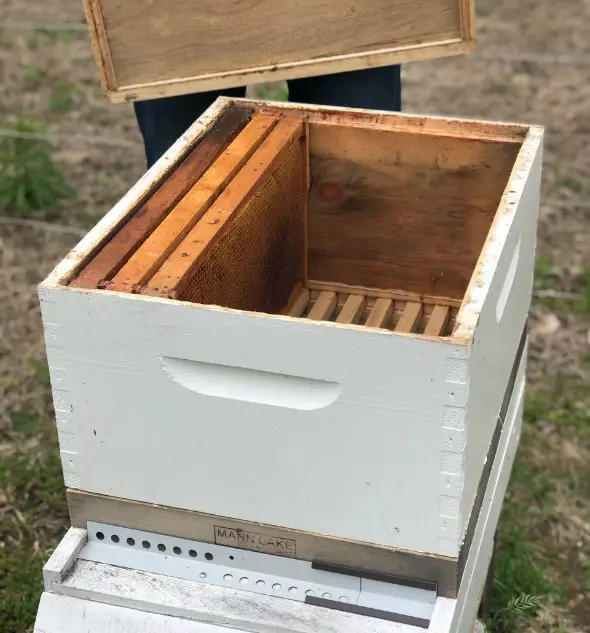
The following is a list of the basics that will need to be purchased prior to getting your “nuc” or bee package.
- Housing – Bee housing that is. They will need a place to live or a hive. Prices will vary considering location purchased (shipping costs or not), the hive type (a Langstroth hive is what we use and is common in modern hives) A typical Langstroth hive (a vertically modular beehive) includes vertically hung frames, a bottom board with entrance for the bees, boxes containing frames for brood and honey (the lowest box for the queen to lay eggs, and boxes above where honey may be stored) and an inner cover and top cap that provides weather protection. Plan on spending approximately between $125 and $200 depending on the features you choose. Some include the foundation or base for the hive, and others don’t. If building a foundation an additional $25 or more will need to be added to the total cost. If the hives are not painted or treated to help protect it against the elements, additional costs will need to be added as well.
- Apiary Ground Work – Unless you have landscaping and gardens conducive to keeping your bees content and happy, you may be wanting to add some bee-friendly nectar sources to your landscape.
- Bees – This is a no brainer, you will need to purchase our bees unless you are a nature wizard and want to source your bees from the wild. Not sure about you, but as a beginner the thought of approaching a wild hive or even a swarm (you’ve seen the pictures of thousands of bees covering vehicles etc) and trying to capture them is just a tad intimidating 🙂 Purchasing bees can be done two separate ways. In packages consisting of roughly 3 pounds of bees with a queen that is separately caged or via a “nuc” consisting of a small nucleus of bees already in 3-7 frames with a queen already hard at her work within the “mini hive” of the nuc. Purchasing bees is not cheap. You can plan on spending anywhere between $125 on up depending on your location, shipping costs, and so forth, per package or nuc.
- Protective Gear – At a minimum, you will want to purchase a beekeeping suit of some kind. Here at IMSL, we utilize a beekeeping jacket with the ventilated hood as shown below and take an added precaution of duck taping the bottom of pant legs when getting into the hives. A full beekeeping suit is also an option and we have shown some well reviewed ones below. Gloves are also an option and are an additional cost.
- Additional Equipment – A beehive smoker is a must have and can be purchased at a minimal cost.
As you can see, getting setup can get pretty pricey depending on how many hives you hope to begin with. Having the discretionary funds to meet those needs are a necessary factor to be considered.
DO YOU HAVE THE APPROPRIATE LOCATION TO KEEP BEES?
One of the beautiful facts about keeping bees is they can be kept anywhere. City rooftops, small garden areas, suburbia, and large farms or small backyards. There are location considerations for the hive itself you need to take heed of, however.
Beehives need specific placement in order to thrive. A south-facing hive is best (the entrance of the hive facing South). Hives should be sheltered from the harsh winds, and receive a fair amount of morning sun (translating to an earlier start in the morning for those hard worker bees & don’t need to expend as much energy cooling the hive in the afternoon sun).
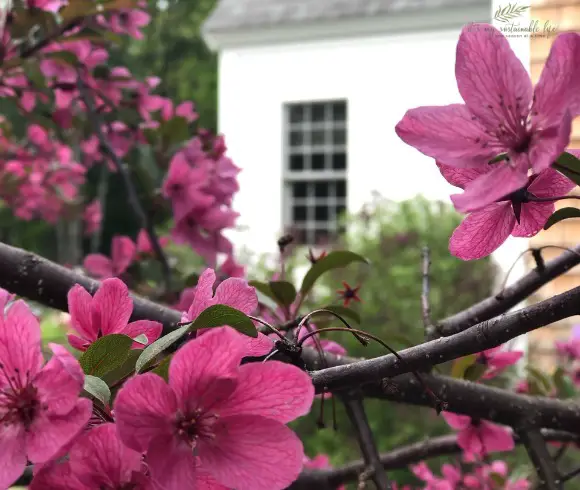
As bees have a specific fly pattern, taking into consideration neighbor’s locations is a thoughtful deed. Should the bees fly pattern head straight into your neighbor’s yard, a tall fence built around the hive may force the bees fly pattern up and around the direct path to your neighbor’s wrath, if you get the gist of my meaning 🙂
DO YOU KNOW YOUR LOCAL RULES & REGULATIONS?
Although beekeeping is being widely embraced due to their endangerment, checking with the local authorities, especially if you live in suburbia & urban centers, is always advised. Forearmed and forewarned with any legalities or restrictions is always recommended prior to installing your hives.
DO YOU HAVE ALLERGIES?
Although this should be fairly obvious, those with severe allergic reactions to bee stings should steer clear of beekeeping. Even utilizing all the precautions and coverings of standard beekeeping procedures, stings do happen. Even though those with mild allergies that may have access to epi-pens, this is one hobby that you may want to reconsider.
Even if you do not possess any severe allergies, you may still want to ask yourself if you mind getting stung. As we mentioned, it happens. When the rare occurrence of a bee sting does happen, we simply make a baking soda paste and slather the sting with it. Instant ease. But if getting the occasional sting is not your cup of tea, you may want to take this into consideration.
DO YOU HAVE THE STRENGTH TO BE A BEEKEEPER?
This consideration is one worth mentioning again. A super filled with honey and frames is no light matter. They can be extremely heavy when filled with honey, especially with the Langstrom hives common here in the US. If you cannot easily lift 40+ pounds without issue, you may need to re-think keeping bees or consider looking into different hive options.
ARE YOU ABLE TO OFFER THE HIVES PROTECTION?
Depending on your location, beehives may need protection. Protection from the elements yes, but more importantly from the wildlife that may enjoy an evening feast if left unprotected.
Where IMSL is located we have bear. Yes, bear in the NE. They enjoy & are drawn to the scent of a protein-filled meal consisting of the bees themselves, although I’m sure they enjoy rounding out their meal with a bit of sweetness from the honey as a side as well.
Providing adequate protection of the hives themselves proved most important when we first began and did not have our hive within our electric fencing system. We lost 2 full hives that year. Learn from our mistakes and protect those hives if you have predators in the area.
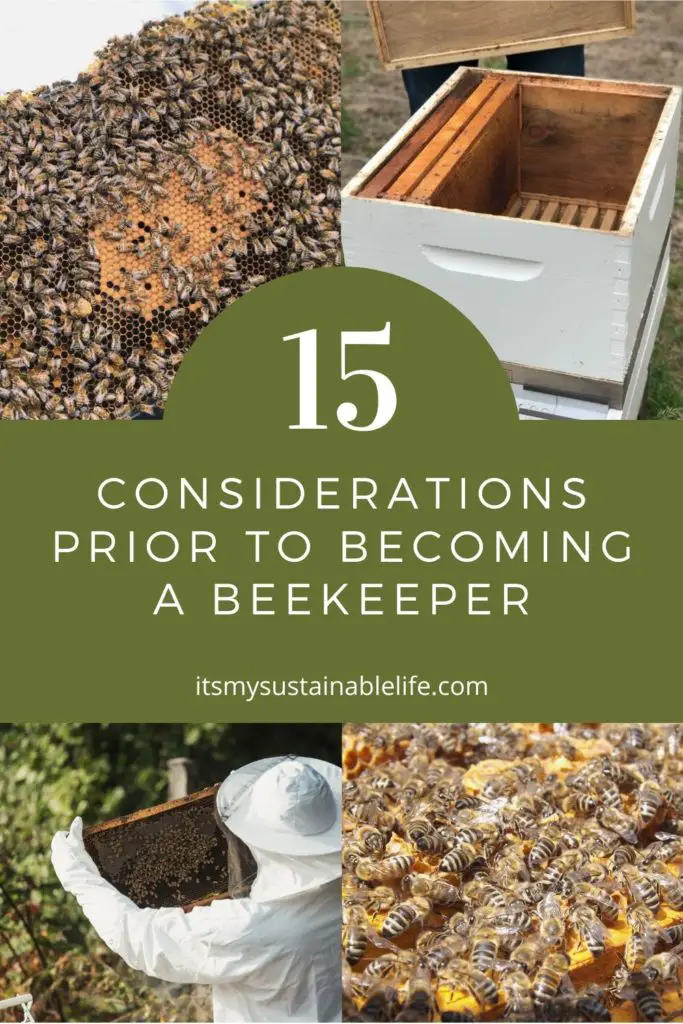
ARE YOU ABLE TO EDUCATE YOURSELF ON BEEKEEPING?
Education is the key to becoming a successful beekeeper. Do you have access to the appropriate reading materials, classes (whether local or online), know of local bee clubs and meetings that you can join? If we could impart one word of wisdom above all else is to seek out a local bee class. The knowledge and access to those who are experienced beekeepers will be one of the most invaluable resources you can have.
ADDITIONAL OPTION – BECOME A BEE “HAVER”
Have you determined that becoming a beekeeper (someone who maintains and works with the bees) is too much for you? Yet the draw of “having” bees on your property is still something you would enjoy and want? You may want to consider “hosting” a few hives on your property.
Many established beekeepers will come to your property, set up their hives, work the hives & maintain them, and in exchange offer you a bit of honey that’s gathered from those hives. Contact your local bee associations and groups to see if this may be an option for you.
Hopefully these considerations will give some guidance if you are considering installing a few hives and becoming an official beekeeper or bee “host”. May your gardens bee buzzing soon 🙂
Do you have any further considerations? Share them below & join in the conversation!
Love, Light, & Laughter ~

OTHER TIPS ON GARDENING | GROWING CROPS BEES WILL LOVE AS WELL
- “Cover Crops – The Best Green Manure For Your Garden”
- “Herb Bed! Recreating A Loved Space”
- “When Life Hands You Heirloom Seeds, Just Plant ‘Em”
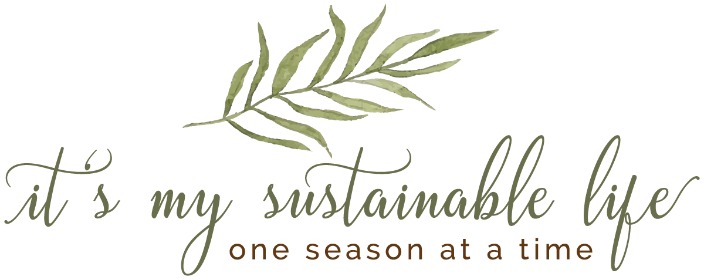
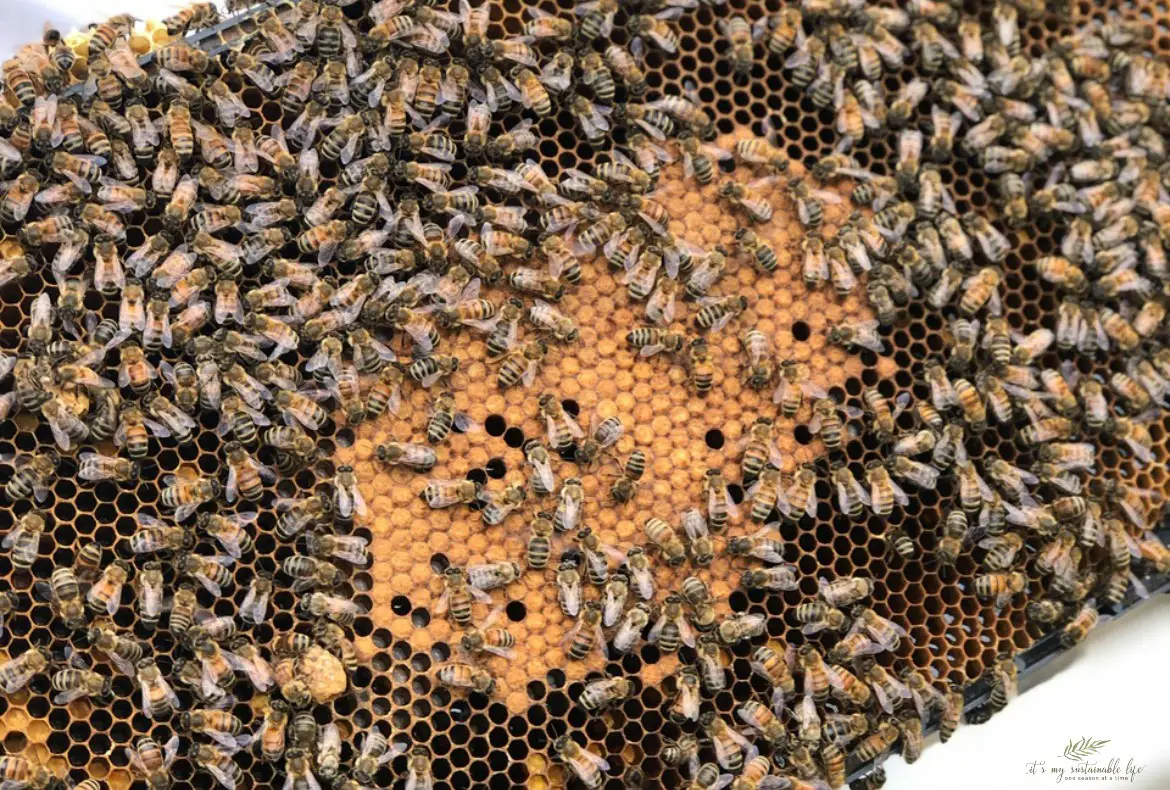
40 comments
I love how you cover all aspects of being a beekeeper to reaping the benefits to warning of the intense work involved. We need people like yourself who can successfully manage hive populations and contribute to sustaining pollinators. I don’t think enough people understand pollinator populations are declining and that without pollinators, we would starve. So Thank you for sharing.
What an undertaking!! I don’t know that I could do this (particularly because I have an allergic sensitivity to bees and we’re not sure about our son), but it does sound like an important role to play. This was extremely informative.
Thank you for sharing at #OverTheMoon. Pinned and shared. Have a lovely week. I hope to see you at next week’s party too!
Come party with us at Over The Moon! Catapult your content Over The Moon! @marilyn_lesniak @EclecticRedBarn
I have always been fascinated by those who are beekeepers.
what a cool article! If i ever get to a place where i have a chunk of land i want bees. And i will revisit this article
Wonderful! I just watched Rotten on Bee keeping and honey! Thank you for this!
I think bee-keepers are the bravest people on the planet. It’d be nice to assist a few times, but not for me full time. I’d be a nervous wreck.
Who knew there was so much to consider! Great post.
I love how you list the pros and cons of beekeeping. I think too many of us see something and think it looks fun or can net them some money. They do not think things through. This gives someone a lot to think about.
I have a friend who is a beekeeper and also makes honey. It is a lot of work and you have to know much more than about just the bees and the hives…your surroundings and the 4 seasons are so important as well – thanks for this information!
Such an informative post. Sadly I do not have the room for bees, but think it’s a great thing to try and preserve these wonderful creatures. We need them!
Such great information!
Thanks for the information about bees. I prefer to buy raw honey.
Very nice, thorough information. I have known several people that raise bees, and I love buying their raw honey. I appreciate your ‘right’ and ‘wrong’ reasons to have an apiary. People need to know the whole picture before they they get into something involving animals. Great post.
Thank you for your kind words, Ramae!
Wow, I learned a great deal reading this post. This was a very fascinating read. Thank you!
Hahaha nope count me out 😂😂 amazing tips for someone that’s interested though!
It’s not for everyone. Thank you for the read!
Great points for anyone to consider – I know for me it sure doesn’t look easy but maybe someone out there may think it is.
There is a lot to consider. You have spelled it out so honestly and detailed. This is great info for anyone thinking of being a beekeeper.
Thank you, Debbie. It was the intent to be as honest as possible when listing the pros and cons, and I’m so happy you feel the mark was hit!
I’m allergic, so I can’t do it, but I give a lot of credit to people who do. We buy honey from a local beekeeper.
We are starting our first beehive this year! So excited.
How exciting for you, Cindy! Good luck with it and let us know if you have any questions!
This is great information! Very interesting and good things to consider if you want to be a beekeeper!
My dad is a beekeeper! I would maybe if I lived out in the country more. Awesome job! way to go!
We have friends who keep bees, and it is a lot of work! They love it, but have had to start over multiple times due to losing their bees. You definitely have to have passion for bees to keep going.
I would love to do this. It is pretty popular in my area since it is warm all year long.
It is an important job you are doing by sharing this info with us! I didn’t realize the loss was so high in the season changes though, wow!
Great article! I give props to those who keep bees, I don’t think I’m cut out for it!
Your post includes so much great information. I have so much respect for anyone who decides to take on this adventure for all the right reasons.
What a well researched and thoughtful article, Suzan. I love my bees, and plant flowers, trees and berries to attract them to the yard, but have never really considered what it would take to have a hive operation on site. I’m sad to hear the percentage that die during the season 🙁
Educating & spreading the word of why they are in such decline is so important. We, as backyard gardeners, can make a great deal of difference in the efforts to save bees by refraining from utilizing many pest controls that are readily available on any big box store shelf. Thank you for the read & for caring about our pollinators!
I wish I was not allergic to bee stings… Bees are disappearing and my garden shows it more every year!
I am so grateful for those who are raising bees near me. I have a supply of local raw honey for my family and they are working hard to build the bee population.
That is wonderful and a win win for all around! Thank you for reading, Linda!
Thank you for writing this great article! It answered all my questions about whether or not hubs and I are ready for bees. I’ve been begging him for literally years….but he says we’re not yet ready. After reading your article, I can see he may be correct. Anyhow, you’ve given me great ideas to research more as well as considerations I hadn’t thought of. And nice to meet you! I found your site and article on the Homestead Blog Hop!
Hi Heidi!
Thanks so much for reading and stopping by! It’s always nice to meet new visitors! I look forward to connecting 🙂
I think it would be a fun hobby to be a beekeeper. Thank you for all the information.
Have a great day,
Kippi
How interesting. I never knew this was so complicated and time investing. I knew the risk of loss during the seasonal changes. Good to know the time commitment before diving in. Thanks.